Post
A catch
Save a catch to start your fishing logbook. You will be able to to share it with the community if yo want!
A fishing trip
Post an ad to go fishing with other fishermen
Save a catch to start your fishing logbook. You will be able to to share it with the community if yo want!
Post an ad to go fishing with other fishermen
Share a thought, a question with the community
My favorite cities
×Join our 7 fishermen in San-Francisco in City and County of San Francisco. The fishing forecast is currently 3.3. The most caught fishes here are the bull huss, the great barracuda, the bluefish and the lesser amberjack. Come try the most famous fishing techniques like the gathering seafood by hand, fishing bream from a dock or jetty, bass trolling or dive fishing.
Our fishing forecast of San Francisco indicates the best time to go fishing in this city.
The Bull Huss
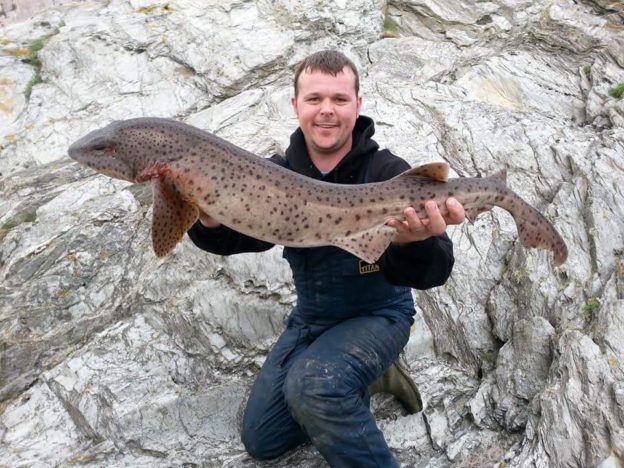
The Bull Huss belongs to the Scyliorhinidae family. Small in size, they usually measure 60 to 80 cm, although there are larger ones, since they can reach 1.5 m in the Mediterranean and 2 m in the Atlantic. This fish can live for 75 years. It spawns a hundred eggs all year round, especially in the late winter and in July. It is abundant every day of the year. This fish is not really active but still is hard to catch. The upper part of the Bull Huss is light brown in color, covered with small dark brown spots. Because of this pattern of spots, it is also called spotted cat shark. The part of the flank is white and grey. The mouth and nose holes are below his obtuse head. The particularity of the Bull Huss is that its nostrils are linked to the mouth by a curved line.
The Bull Huss is a famous fish you can catch in San Francisco.The Great Barracuda
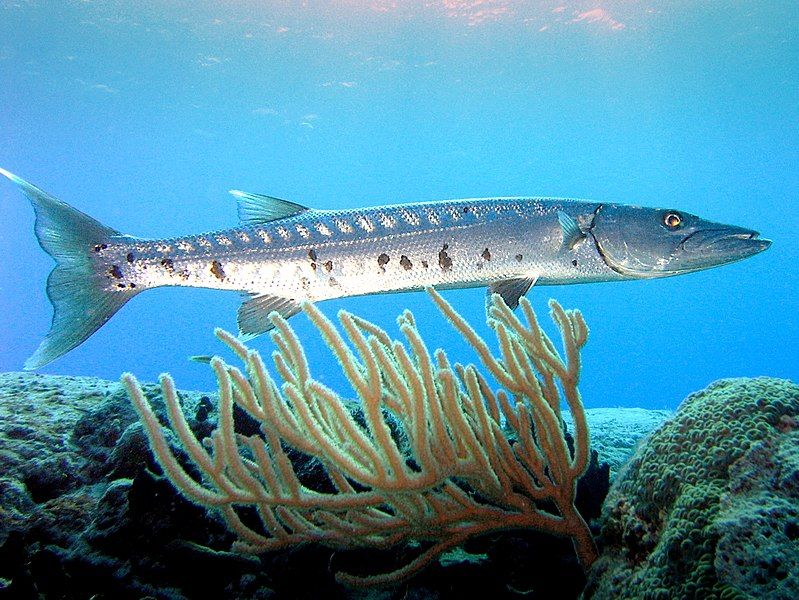
The Great Barracuda belongs to the Sphyraenidae family. Adult specimens are generally between 60 and 100 cm long and weigh between 2.5 and 9.0 kg. It has a life span of 14 years. They are thought to spawn in the spring. It can be fished all year round. The large barracuda has a slim, streamlined body that is round in the middle. The top of the head between the eyes is almost flat and the mouth is large. It contains many large pointed teeth and a protruding lower jaw. The ends of the pectoral fins extend to the origin of the pelvic fins. The spiny and soft dorsal fins are largely separated and the double emarginated caudal fin has pale tips on each lobe. The body color of the great barracuda is brownish grey or bluish on the back and top, with a dominant greenish-green color ranging from grey to silver on the sides and a white belly. The upper surface can have between 18 and 23 dark bars, most often observed when the fish is resting or on a mixed substrate. The black spots on the lower sides of the great barracuda distinguish it from other barracuda species. The second dorsal fin, anal fin and caudal fin are purple to black with whitish tips.
The Great Barracuda is a famous fish you can catch in San Francisco.The Bluefish
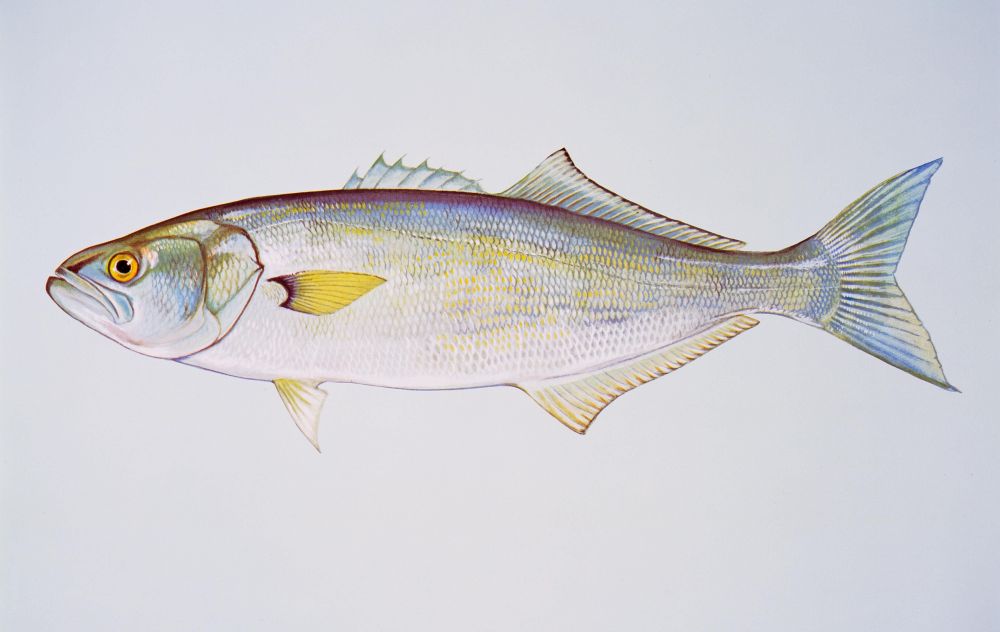
The Bluefish belongs to the Pomatomidae family. The average size of the bluefish is 18 cm for a weight of 9 and a maximum of 18 kg. It can live up to 9 years. They breed from June to August. It can be found in abundance in summer. The body is oblong and elongated. The head is quite short and the jaws are powerful, armed with strong incisors. The lower jaw is thick. The first dorsal fin is composed of short, robust spiny rays, the second dorsal fin and the anal fin are approximately symmetrical. The body and the caps are covered with small cycloid scales. The body is blue grey to dark green grey on the back, the sides and belly are silvery. A dark mark at the birth of the pectoral muscles is characteristic.
The Bluefish is a famous fish you can catch in San Francisco.The Lesser Amberjack
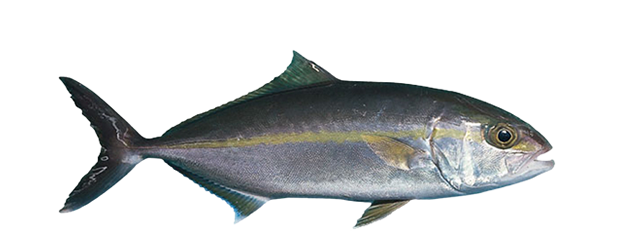
The Lesser Amberjack belongs to the Carangidae family. It has an average length of 50 cm for 4,53 kg. It has a lifespan of about ten years. It spawns throughout the year. It can be fished all year round. The body is short, a little wide and slightly tapered from the middle to each end. Above the lateral line, they are olive green, brownish, dark pinkish or purple and below the lateral line, they are white or silver grey. A slightly golden line extends from the eye to the tail and a dark band extends diagonally from the eye almost to the first dorsal fin. Juveniles have seven to eight brownish, irregular and sometimes broken bands. The first rounded dorsal fin has eight spines. The second largest dorsal fin, which is not connected to the first, has a spine and 30 to 32 rays. There are three spines and 19 to 20 rays on the anal fin. The second dorsal fin and the smallest anal fin are similar in shape, with the front ends extending to a peak. The tail is in the shape of a boomerang.
The Lesser Amberjack is a famous fish you can catch in San Francisco.The Spanish Mackerel
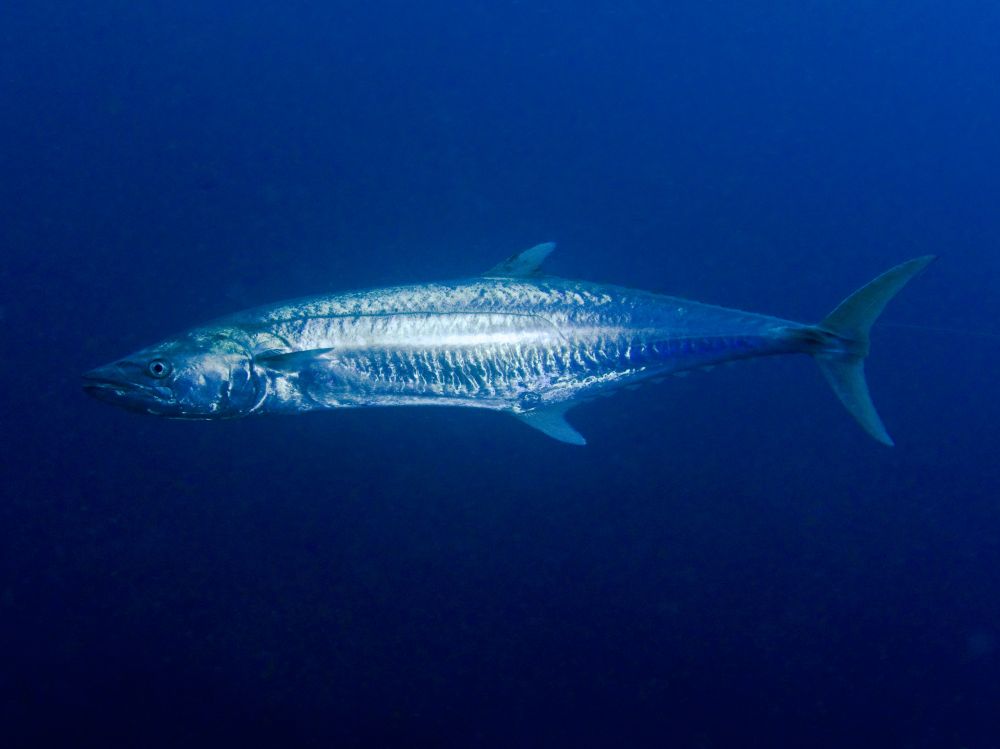
The Spanish Mackerel belongs to the Scombridae family. It has an average length of 50 to 80 cm for 3.2 kg. The maximum length recorded is 120 cm. Its maximum lifespan is about 20 years. They spawn from April to September. It is fished from March to September. Spanish mackerel has the contours of slender mackerel rather than bonito, its body being nearly 4½ at 5 times longer than depth. its two dorsal fins (like those of bonitoes) are barely separated, and secondly, because of its colorful pattern, its high slender dorsal shape and spotted sides distinguish it at first sight from our bonitoes, while its thin shape, long first dorsal fin and second dorsal fin contour distinguish it from the small tuna. Spanish mackerel is dark blue-green or blue-green above, pale below, like all Scombridae, and silvery, with many small oblong oval, dull orange or yellowish spots on its sides above the lateral line and below, which are highly diagnostic in nature. The fact that the membrane of the front third of its first dorsal fin is black, while its back part is greenish white, is also useful. The second dorsal and pectoral fins are pale yellowish with dark margins; the anal and ventral fins are white.
The Spanish Mackerel is a famous fish you can catch in San Francisco.Our fishing forecast of San Francisco indicates the best time to go fishing in this city.
Our fishing forecast of San Francisco indicates the best time to go fishing in this city.
Our fishing forecast of San Francisco indicates the best time to go fishing in this city.
